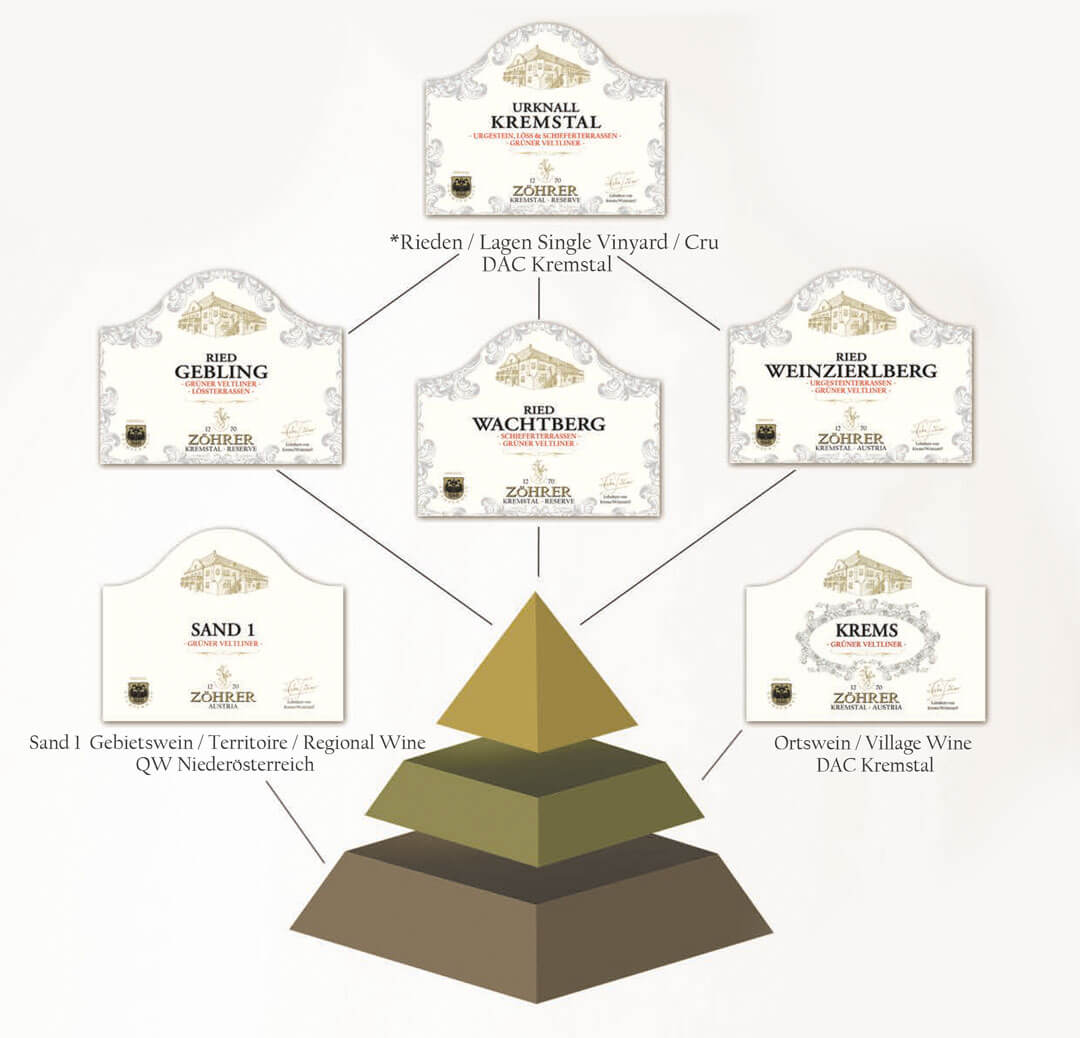
The soils/Terroir
The stony primary rock and also the slate soil stores the heat of the sun and thus ensures a heat balance in the wine terraces on cooler nights. But stone soils do even more. They are very rich in potassium and offer the vines a rich, natural source of minerals, which also reaches the grapes. Thus the primary rock & slate soils shape the mineral taste of our Gigant and also Urknall collections in an unmistakable way.
The loess: Powerful and profound and very delicate. The fruitfulness results from the small but not too fine particle size and the adjunct easily accessible richness of minerals.
Up to 17 metres deep roots gives our wines from Sand1, ClassiC, Impuls & Urknall Collection their distinctive loud fragrance and the elegant and zesty taste. Also our red wine collection comes mostly from loess and therefore enjoys its complexity & density.
The Micro-Climate
Terraced locations, facing south and the Danube, provide the perfect climate. The southern slope guarantees sunlight from morning to evening, which is also reflected by the Danube on the wine terraces. Moreover, like the primary rock, loess & slate soils, the Danube stores the warmth of the sun and releases it to the vines at night and on cooler days. This microclimate ensures a long vegetation period, during which the grapes ripen slowly while retaining their refreshing acidity.
Old vines
In the 19th century, phylloxera struck and destroyed many European vineyards. To defend themselves, European winegrowers, for example, grafted their vines with American phylloxera-resistant vines. Old, deep-rooted vines give a lower yield, but in return deliver mineral essences that are particularly rich in extracts. The Zöhrer Winery relies precisely on this special whim of nature and tries year after year to bottle the best musts from the terroir and also the Rerserve collection from old vines.
Ernings
Healthy and ripe grapes – harvested at the point – are the motto of the Zoehrer Estate every year: fewer grapes on the stock – more quality in the wine cellar.
Controlled & Integrated Wine Production
With a green eye, the Zöhrer Winery, as “integrated” producers, regards soil fertility as the most important basis for producing great wines. We try to keep external influences on nature as low as possible and always apply methods that are similar or similar to the measures of organic cultivation first. A complete conversion of all vineyards is planned by Toni Zöhrer, but with the terraced vineyards it will be a long and hard road!
With the integrated viticulture (KIP) a further area in near-natural cultivation methods has been established in the last years, which combines environmental and nature protection with economic efficiency and social interest. This triangle of ecology, economy and social interest is based on the concept of sustainability and expresses that improvements in one of the three areas must never be at the expense of the other areas.
Synonyms:
„umweltschonender Weinbau“ (Deutschland)
„Viticulture Raisonnée“ (Frankreich).
„Kontrolliert Integrierte Produktion“ (Österreich)
The most important organisations are:
„Kontrolliert Umweltschonender Weinbau“ (KUW)
„Verband Deutscher Prädikatsweingüter“ (VDP) Deutschland
„Terra Vitis“ (TV) Frankreich
„Kontrollierte Integrierte Produktion“ (KIP) Österreich.
